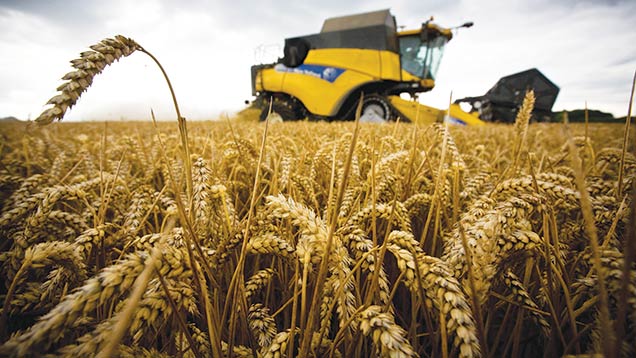Global warming threat to wheat yields
 © Tim Scrivener
© Tim Scrivener New research in the UK has predicted global wheat yields will drop by 6% for each degree of centigrade of global warming.
The study, published in the journal Nature Climate Change, also warns global warming will increase variability of wheat yields across regions and seasons.
An international group of agronomists, including scientists from Rothamsted Research, used computer modeling technologies, field and artificial heating experiments to focus on responses of wheat to high temperatures.
Some 30 wheat crop models were compared with two previously unpublished data sets from field experiments in which wheat was exposed to growing season mean temperatures ranging from 15 to 32C.
“Breeding for late-maturing cultivars with longer grain filling to recapture the temperature-induced loss of biomass and grain yield could be beneficial as long as exposure to heat stress and terminal drought does not become counter-productive.”
Mikhail Semenov
See also: Highest wheat yields on record thanks to ‘perfect’ weather
The study’s results indicated global wheat production losses of 6% for each degree centigrade of global warming, with increased variability of yield across regions and seasons.
Mikhail Semenov, whose team at Rothamsted Research contributed to this research, highlighted some of the options to adapt and mitigate the adverse effects of climate change on global wheat production.
“Breeding for late-maturing cultivars with longer grain filling to recapture the temperature-induced loss of biomass and grain yield could be beneficial as long as exposure to heat stress and terminal drought does not become counter-productive,” said Dr Semenov.
“Optimising this trade-off should be region specific, and crop modeling is a key exploration tool to underpin crop adaptation for a changing climate.”
Professor Martin Parry, who is leading the 20:20 Wheat Institute Strategic Programme at Rothamsted Research, said the study was an excellent example of collaborative research that will help ensure we have the knowledge needed to develop wheat crops for the future environments.
